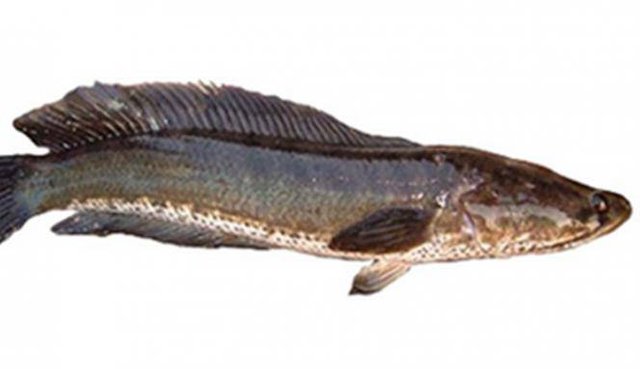The King of Swamp

Fish cork is a type of fish that is not much cultivated, but many live wildly in many areas. Fish corks known as predator fish are found in many islands, rivers, sponges, trenches, swamps, in paddy fields, even waters with low oxygen levels.
Cork fish is also known by many names in various regions in Indonesia, including; fish kotes or curses (java), fish kocolan (Betawi), fish haruan or bogo (Sunda), bocek (Riau), lips, kobus, and others.
Fish Corks with scientific designations Ophiocephalus striatus and channa striata have common features of elongated round body, rounded back, snake-like flaky head, black body color with white or creamy stomach, body as pictorial, and have a rounded semicircle fin. In English, this freshwater predator fish is called the Snake head.
The nutritional content of Gabus fish About the nutritional content, all kinds of fish is a very good source of protein. But the cork is known as a fish that contains more nutrients than other types of fish. Protein content of cork fish is 25.5%, which is higher when compared with protein content of milkfish (20.0%), goldfish (16.0%), snapper (20.0%), and sardines (21.1%) (Anonymous, 1996).
Fishing properties Corks Cork is also known to contain albumin, which can reach about 6.224 g per 100 g of cork fish meat. The content of albumin plus zinc (Zn) minerals amounting to 1.7412 mg / 100 g in cork fish meat is associated with better wound healing process. The popularity of cork fish has been widespread since there are several hospitals that utilize cork as a source of albumin for patients who lack albumin (hypoalbumin), as well as for therapeutic treatment, accelerate the healing of burns, ordinary injuries and postoperative wounds. What is albumin? Albumin is present in human blood plasma, even more than 60% of other proteins. Albumin is useful as a carrier of small molecules to pass through plasma and cell fluids, which are closely related to metabolism and carriers of various insoluble drugs. In other words, albumin is a drug carrier, so it does not settle in the body and cause poisoning. Types of water-insoluble medicines such as aspirin, anticoagulants, and sleeping pills require albumin to be well-circulated. Benefits of fish cork Fish cork is a type of fish that has been shown to contain many types of this protein.
For taking albumin from sarcoplasm from fish cork tissue can be done by simple extraction - method by using solvent. The process of taking a simple albumin fish cork can also be done at home, that is by way of steaming process until the liquid out of the turbid white.
Here are some properties associated with eating fish cork: cork Helps accelerate healing Albumin also plays a role in regenerating dead cells, so that the incidence of damaged cells due to injury or surgery can recover quickly. For patients with certain diseases will get longer healed, because the drugs given are not easily absorbed properly by cells that require treatment.
So, eating fish cork or albumin extract from cork fish can help speed up treatment, accelerate healing of burns, kidneys, burns or postoperative wounds. A study ever conducted by prof. DR. Dr. Nurpudji from Hasanudin University, Makassar, showed that albumin levels in patients in RS Wahidin Sudiro Husodo increased significantly after several meals of cork fish, thus accelerating the healing process.
The same research that has been done in Dr. General Hospital. Saiful Anwar Malang showed that 2 kg of cooked cork fish daily to postoperative patients increased their albumin to normal. Meanwhile, a study conducted at Hasanudin University also showed elevated levels of albumin in the patient's blood up to 0.6 to 0.8 g / dl after a cork fish extract for 10 to 14 days. Supporting infant growth A lack of albumin can occur in the human body, a condition known as hypoalbumin. This can cause the nutrients can not be distributed properly throughout the body, so for children can cause inhibition of growth, brain development is not optimal, decreased immunity to cause the child easily sick.
A study showed that toddlers who ate cork fish regularly had significantly higher levels of albumin, and had significantly increased body weight and blood hemoglobin levels. Albumin is needed for brain development, especially for toddlers who are in the golden phase of growth (golden age).
Thus, feeding the cork can help prevent the problem of less intelligent children. Normal albumin levels between 3.5-4.5 g / dl, and when less than 2.2 g / dl can cause problems in the body. Things like this can be seen in children who have growth delay, but if observed actually never lack of food or nutrition. If this happens continuously, the child will experience a growth disorder that can cause skinny or like a malnourished child.